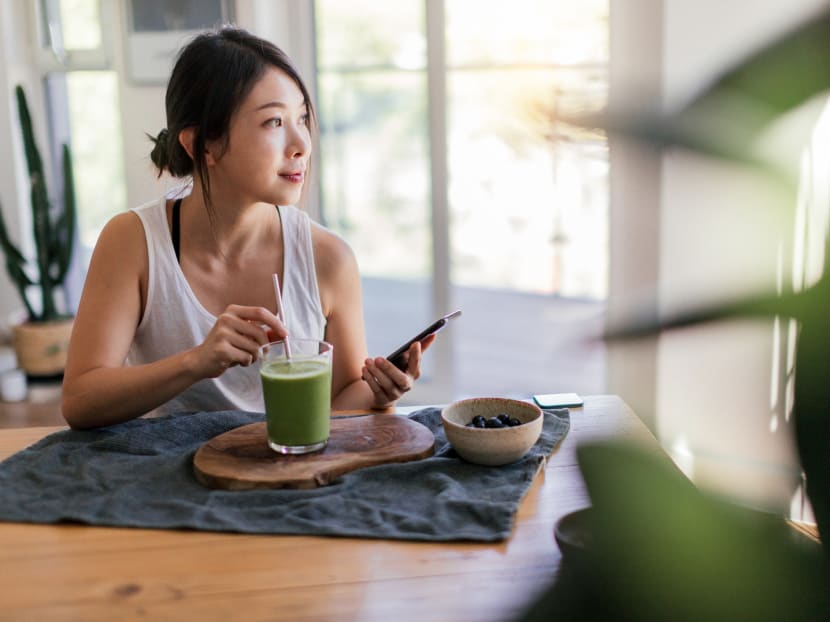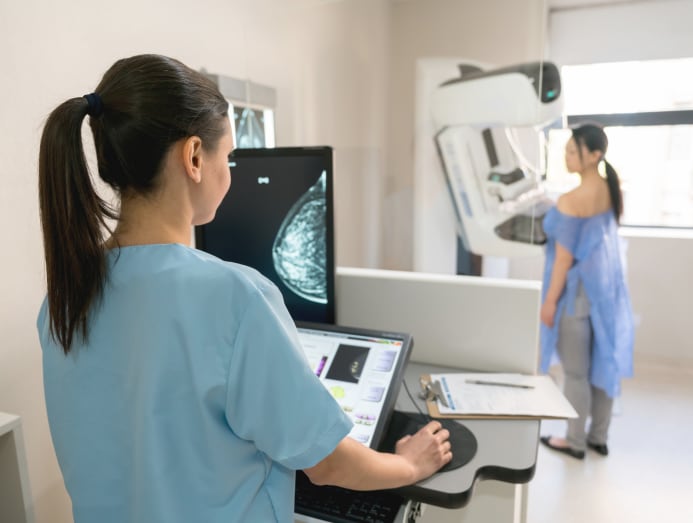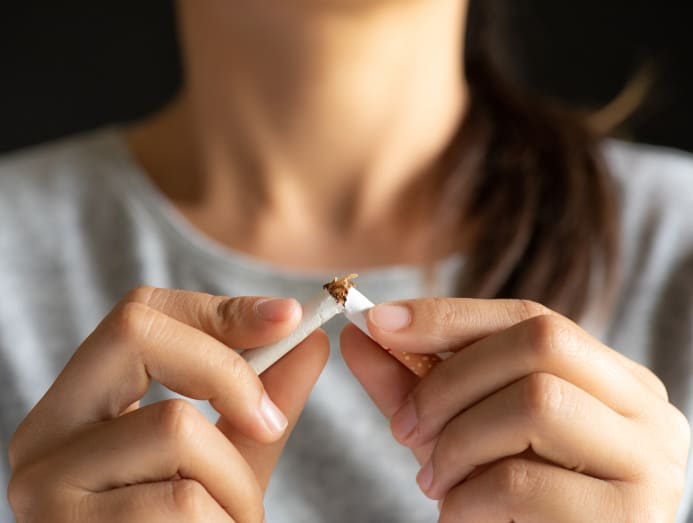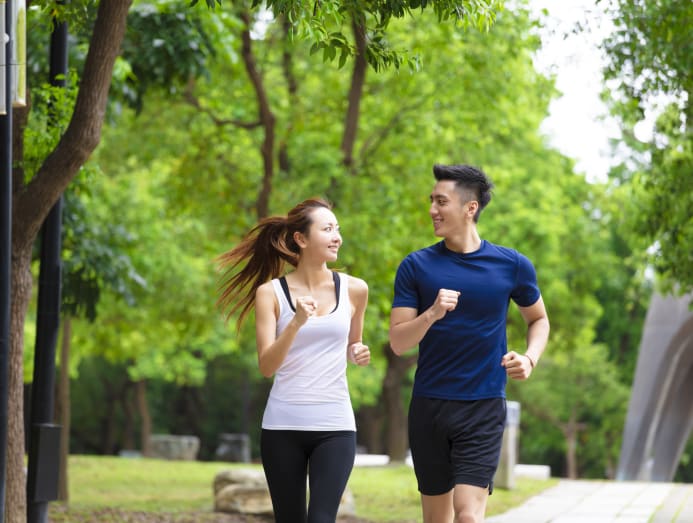How to keep cancer at bay: Everyday tips to help you reduce your risk
Cancer cases among women in Singapore are on the rise, according to a study. But no step is too small and it's never too late to make positive lifestyle changes.
In partnership with UOB.

(Photo: iStock/Gu Studio)
When it comes to health, nothing jolts us out of our complacency as much as a cancer scare. A lump in the breast, unusual vaginal discharge, even changes in our menstrual cycles (heavier- or lighter-than-usual bleeding?) can send the most rational mind into a tailspin.
The national statistics aren’t rosy either. Cancer cases among women are on the rise, according to the latest 2018 Singapore Cancer Registry Annual Report by the National Registry of Diseases Office (NRDO).
Between the two periods of 1968-1972 and 2014-2018, the incidence rate increased from 155.0 to 231.6 per 100,000 population.
One explanation for the increase is our longer life expectancy. As more individuals live past their 80s, when the age-specific incidence rate of cancer is at its highest, they add to the statistics, explained the NRDO.

For instance, the proportion of cancer diagnoses among those aged 70 years and above has risen from 17 per cent to 32.3 per cent over the same periods.
Since we’re likely to live longer, it pays to make our years as cancer-free as possible. Here’s a look at the lifestyle changes you can make to lower your risk.
GET SCREENED YEARLY
We’d be remiss to skip health checks. After all, the adage “prevention is better than cure” couldn’t be truer for cancer.
“The early detection of pre-cancerous changes and early-stage cancers with yearly routine screening programmes has proven to save lives”, said Dr Sau Po Yi, the medical director of Nuffield Wellness, a clinic that provides wellness services for the body and mind.
For instance, breast cancer, which is the number one cancer in women, may only require a lumpectomy (removing only the affected part of the breast) when detected early compared to a mastectomy (removing the entire breast) as well as additional treatment such as chemotherapy when picked up at a late stage.

Setting aside the budget for these annual cancer checks – and they can increase as you age – is important. Here’s what the National Cancer Centre Singapore recommends you should include in your checks, according to your age:
Breast cancer
- Age 40 to 49: Mammography every year
- Age 50 to 69: Mammography every 2 years
Cervical cancer
- Age 25 to 29: Pap smear every 3 years
- Age 30 and above: HPV DNA test every 5 years
Colorectal cancer
- Age 50 and above: Faecal occult blood testing every year; or colonoscopy every 10 years; or CT colonography every 5 years
Financially speaking, one tip is to look out for savings accounts that cover you as you save, such as the UOB Lady’s Savings Account. For instance, you’ll receive a complimentary enhanced health screening package worth up to S$660 when you top up your Lady’s Savings Account. It also provides coverage of up to S$200,000 for six female cancers, including breast, cervix, uterus, fallopian tube, vagina/vulva and ovary.
QUIT SMOKING
Smokers probably hear this advice ad nauseum. But the truth of the matter is, tobacco is a major cancer risk factor, said Dr Sau.
Simply put, the poisons in cigarette smoke can weaken your immune system, making it harder for your body to kill the cancer cells. Without this “off” switch, the cancer keeps growing.
And it’s not just lung cancer; quitting smoking can also lower the risk for other types of cancer, including of the mouth, throat, oesophagus, pancreas, bladder, stomach, colon, rectum, liver, cervix and kidney, according to the US Centers for Disease Control and Prevention (CDC).
You’ll have to stay on course but the rewards are motivating. For instance, your risk of lung cancer is halved within 10 to 15 years of quitting, noted the CDC. Within 20 years of not lighting up, your risk of cervical cancer drops by about half.

STAY LEAN
Body positivity may be an empowering movement but there comes a time when you need to assess how your weight impacts your health – especially when you have a family history of cancer and/or pre-existing medical conditions such as diabetes or hypertension.
But what’s the link between fat tissue and cancer cells? Several women cancers such as of the breast and endometrium are stimulated by oestrogen.
Fat tissue, in particular, produces an enzyme known as aromatase that can result “in the production of additional oestrogen” and “increase your risk for cancer”, explained Dr Sau.
And it’s not just a woman’s lifetime risk of developing breast cancer that obesity can increase, said Dr Sau; obesity can also boost your risk of uterine and endometrial cancer.
EXAMINE YOUR DIET
You already know that processed food that is high in fat, sodium and sugar but low in fibre, vitamins and minerals is a recipe for cancer.
But swinging to the other extreme of focusing only on supposedly cancer-fighting “superfoods” such as blueberries, broccoli and green tea isn't necessary either, according to Cancer Research UK. These claims aren’t backed by science; a better bet is to eat as varied and as colourful a range of food as possible.

Choosing food that is as close to its natural state as possible is another good move; for instance, chicken breast versus chicken nuggets.
But what if you’re finding the dietary changes difficult to swallow? “Yes, we are creatures of habit and making the initial change is tough,” said Dr Sau. “More often than not, we start only after certain alarms have gone off in our body system.”
The good thing is, no step is too small or too late to make a positive change, she said. “You could start by cutting down the sugar in your drinks or limiting yourself to one bubble tea a week – reduced sugar, of course.” Cutting down on alcohol would also be beneficial, said Dr Sau.
CAN SUPPLEMENTS PROTECT US?
As much as we would like a magic pill that can protect us from cancer, there really isn't one, said Dr Sau. “Scientific data have shown that vitamin and mineral supplements have not been able to reduce the risk of any cancers – reproductive ones or otherwise.”
You are better off eating more fresh fruits and vegetables – nature’s own health supplements – to help yourself stay cancer-free, she said. For instance, the fibre from these foods can help reduce the risk of colon cancer, she added.
GET ACTIVE
Exercise can help you to shed the extra kilos, which is an all-round booster from many perspectives. You feel more confident, more energetic, less moody and you’ll also be less likely to be panting from toting home your groceries.
But what’s just as crucial are the changes that you can’t physically see. According to the Cancer Research UK website, keeping a healthy weight reduces the risk of 13 cancer types.

“One of the reasons for this is that having less body fat can reduce inflammation levels around the body,” it noted. And if you recall from earlier, having less fat tissue also means less cancer-triggering hormones produced.
Being active can also give your immune system a boost and make it work more effectively, according to Cancer Research UK, as well as help move food through your bowel faster. “This means anything harmful in food waste spends less time in our bowel, which may help to prevent bowel cancer,” noted its website.
Strive to get at least 150 minutes of moderate aerobic activity, such as jogging, swimming or cycling, a week. As a general goal, include at least 30 minutes of physical activity in your daily routine, so if you're slumped in bed reading this, it's time to get off your butt.
For more great ideas for you and your money, visit www.uob.com.sg/women.
CNA Women is a section on CNA Lifestyle that seeks to inform, empower and inspire the modern woman. If you have women-related news, issues and ideas to share with us, email CNAWomen [at] mediacorp.com.sg.







